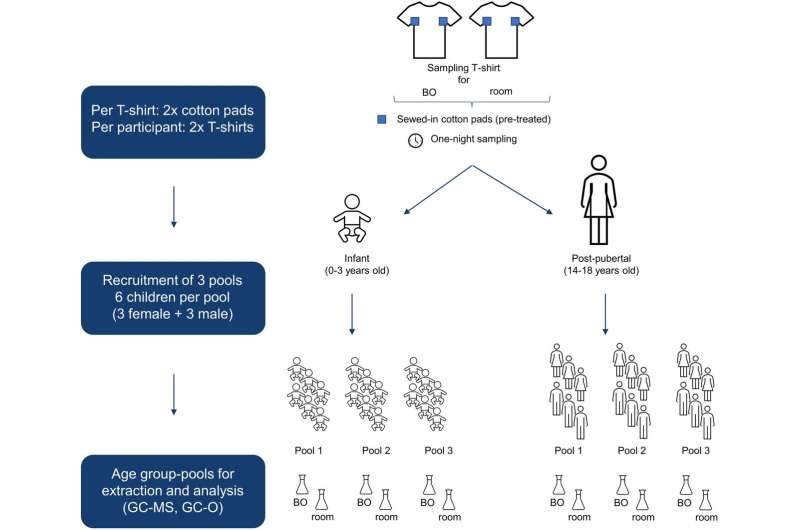March 22, 2024 report
This article has been reviewed according to Science X's editorial process and policies. Editors have highlighted the following attributes while ensuring the content's credibility:
fact-checked
peer-reviewed publication
trusted source
proofread
Researchers explain the dissimilar smells of babies and teenagers

A team of aroma chemists at Friedrich-Alexander-Universität Erlangen-Nürnberg, working with psychologist colleagues from the Technical University of Dresden, has uncovered the reasons for the dissimilar smells between babies and teenagers. The study is published in the journal Communications Chemistry.
Prior research and anecdotal evidence have shown that babies have a pleasant smell, often described as sweet. Teenagers, on the other hand, especially males, have often been described as smelling less pleasant. In this new effort, the research team sought to find out what causes the difference.
The researchers recruited the parents of 18 children aged up to 3 years old to wash the youngsters with a fragrance-free gel and to take swap samples of the armpits of their pajamas prior to sleep. They did the same with 18 teenagers between the ages of 14 and 18. All the cotton pads were then collected and analyzed in a lab setting.
The research team used mass spectrometry to identify the chemical compounds in the pads, and used gas chromatography along with a human sniffer to assess the odorousness of the smells associated with each chemical compound.
The researchers found that most of the chemicals responsible for body odor were similar between the two groups of volunteers. But there were a few that made the difference. Teenage sweat, for example, had high levels of many kinds of carboxylic acids, which the assessors described as "earthy, musty or cheesy."
They also found two steroids in the teen sweat not present in the baby sweat, one of which resulted in "musk or urine-like" emanations—the other, the assessors suggested, smelled more like "musk and sandalwood." Without such chemicals, the sweat of babies smelled much sweeter.
The researchers suggest that study of the chemical compounds in teen sweat could prove fruitful for makers of odor-control products. They also suggest that more work could done to better understand the impact of such odors on parents.
More information: Diana Owsienko et al, Body odor samples from infants and post-pubertal children differ in their volatile profiles, Communications Chemistry (2024). DOI: 10.1038/s42004-024-01131-4
Journal information: Communications Chemistry
© 2024 Science X Network





















